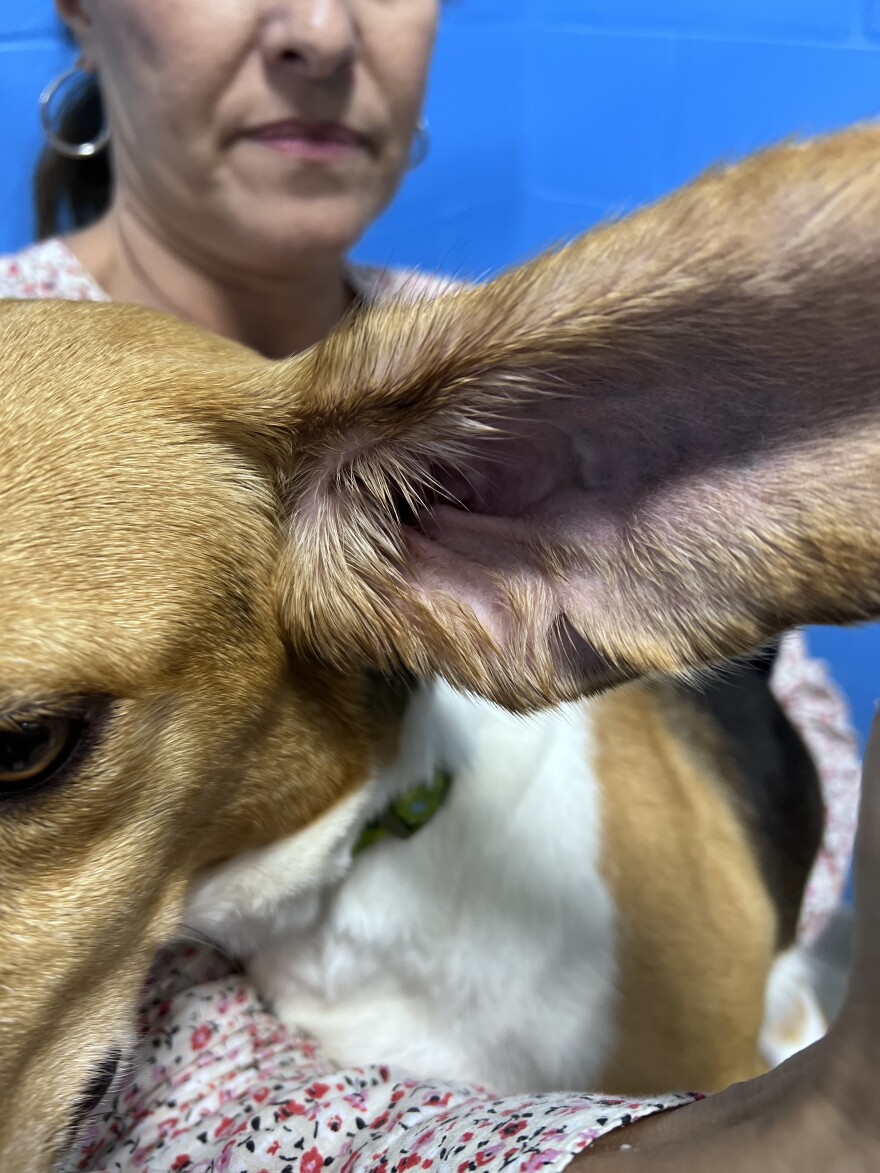The Capital Area Humane Society in Lansing is in search of homes for some of the beagles rescued from a breeding facility in Virginia. Four thousand dogs were removed from the facility after a federal investigation discovered the animals lived in deplorable conditions. The breeder sold the dogs for experimentation.
Up until early August, four-year-old Daisy spent most of her life pregnant and confined to a small cage. She’s one of 20 beagles that have come to CAHS.
Today, Daisy has found her freedom and is ready for her forever home. Capital Area Humane Society President & CEO Julia Wilson says the number one quality they are looking for in potential owners is patience.
“Somebody who understands that these are not going to be dogs to be comfortable in a home environment right away. Some of them, it might take months before they would even want, you know, things that normal dogs want," she said.
Wilson says the shelter currently has 20 rescued beagles under their care, four of which are currently available for adoption.
"There was a nationwide attempt to get these animals out of that facility and into loving homes," she said. "So we were participating in that activity. Many, many shelters throughout the country took dogs and brought them back to their shelters so they could be adopted."

While some of the dogs, like Daisy, have more outgoing and friendly personalities, the majority of them exhibit anxiety and fear when interacting with humans. Wilson says that's because the dogs were subject to significant trauma and abuse at the facility they were in.
"Some of them are more what we call 'shutdown,' which would be they're not really responding to things a dog would normally respond to like human attention," Wilson said. "Not interested in food and things that normal dogs would be interested in due to the traumatic experience that they've had throughout their lives."
According to Capital Area Humane Society Communications Director Penny Myers, beagles are generally used for research purposes because of their temperament.
"They're easy to handle and they're also really friendly dogs, as a rule, so that makes them easier for research," Myers said. "And so the transition for younger dogs is going to be a little easier than for dogs that have lived their entire life in a research facility."

A press release from The Humane Society of the United States said that federal inspectors on the breeding facility found that beagles there were being killed instead of receiving veterinary treatment for easily treated conditions.
Nursing mother beagles were denied food and the food that they did receive contained maggots, mold and feces. Over an eight week period 25 beagle puppies died from exposure to cold temperatures.
The rescue of the beagles follows the filing of a lawsuit by the Department of Justice in May against the breeding facility owned by a company called Envigo.
To inquire about adopting one of these rescued beagles through the Capital Area Humane Society visit their website.


